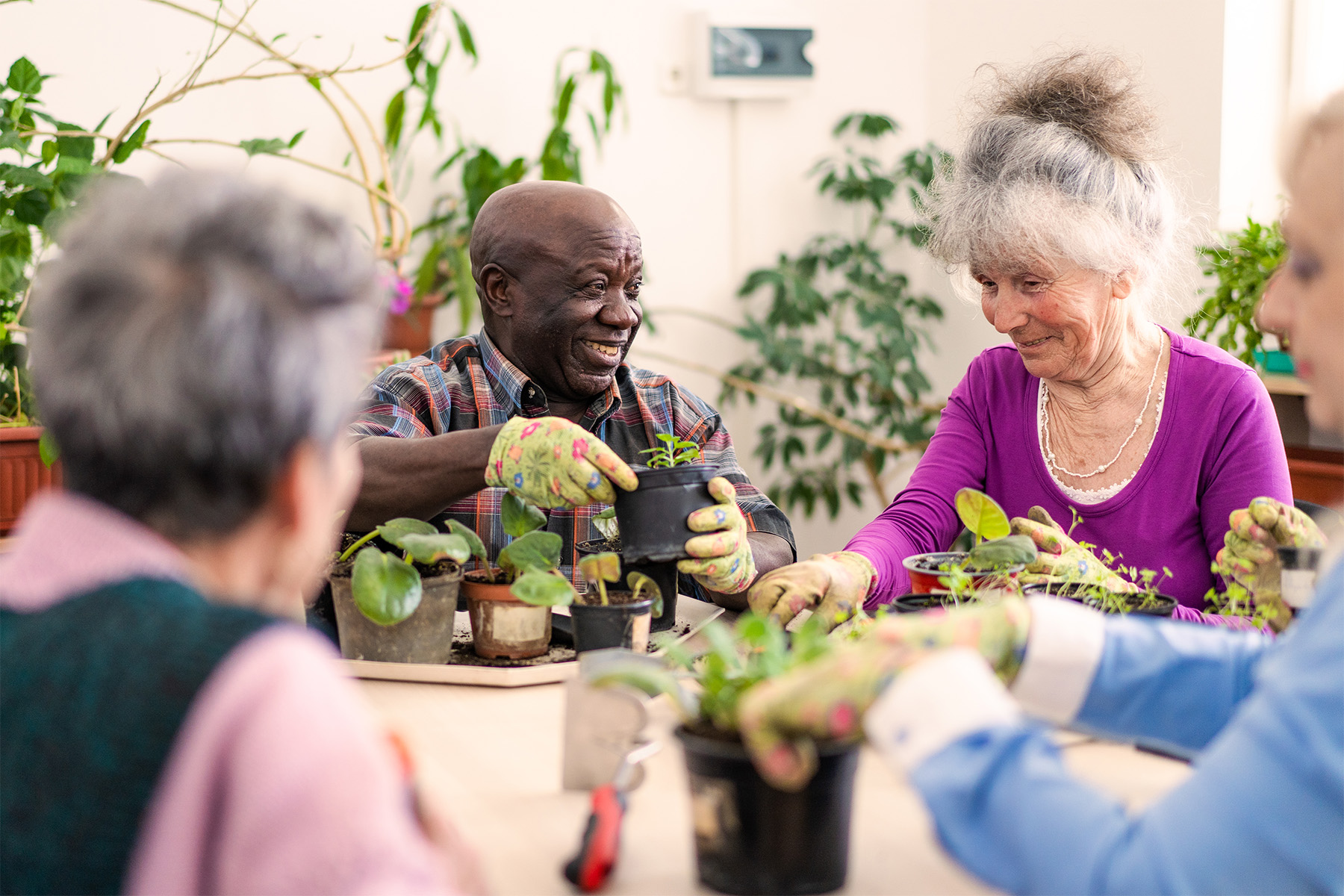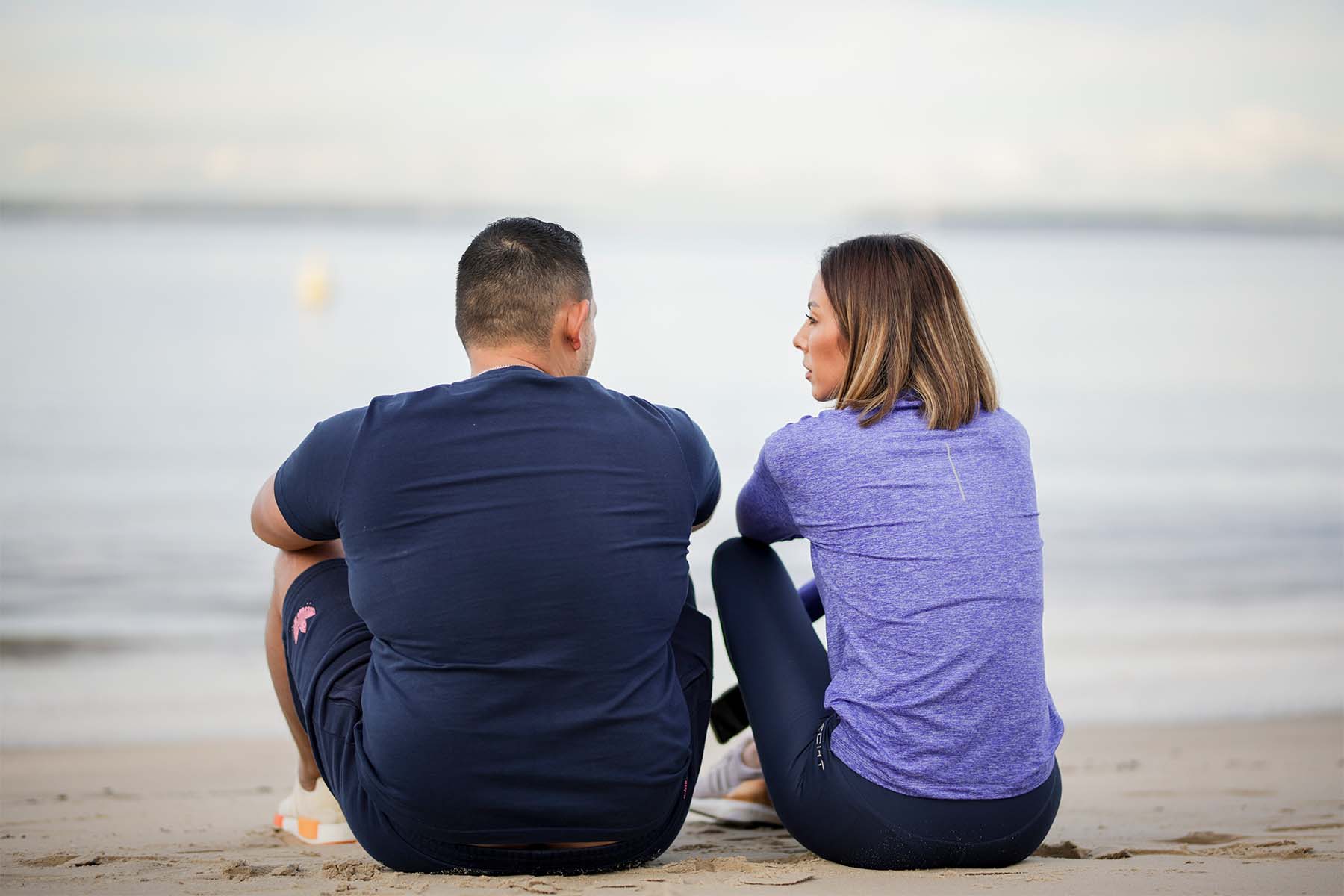
Health & Medicine
Why your brain health matters

A collaboration between the University of Melbourne and Brain Injury Matters is learning from adults with a brain injury what peer support groups mean to them
Published 23 August 2023
More than 400,000 Australians are living with the long-term effects of an acquired brain injury (ABI) like being unable to participate in everyday activities. Indeed, brain injuries are one of the main causes of disability in Australia.
There are many different circumstances that can cause a brain injury. These include medical conditions like a stroke or brain tumours, but brain injuries can also happen because of traffic accidents, falls, sports injuries, or assault including domestic and family violence.

While some of these causes involve related injuries that remain visible once physically healed – and there can be stigma and challenges associated with this – for many people their brain injury remains a ‘hidden’ or ‘invisible’ disability. This can mean it is less likely other people are aware of what they are coping with.
The impacts of brain injuries include, but are not limited to difficulties expressing what you want to say or understanding others; challenges with memory, thinking and fatigue; changes in emotions and behaviour; sensory changes (like light sensitivity, difficulty with loud noises, controlling temperature and pain); and difficulty with moving your arms or legs.

Health & Medicine
Why your brain health matters
That said, people with a brain injury can also find they have changed in ways that they love, offer strengths and benefits, and are their ABI superpowers.
With this diversity of potential impacts, an experience of brain injury is always unique to each person, but there are also many aspects of life with a brain injury that people with ABI have in common.
For example, people with a brain injury commonly experience social isolation and loneliness which can can harm both their physical and mental health.
Three years ago, because of COVID-19, many of us experienced social isolation in a way we hadn’t before. In 2020, here in Victoria, an organisation called Brain Injury Matters (BIM) responded to its members – who in their annual survey identified social isolation as a major issue for them – by setting up peer support groups.
BIM is a not-for-profit self-advocacy organisation with a goal to “empower people living with an acquired brain injury”. Established more than 20 years ago, BIM has nearly 4000 members and all office bearers and committee associates have an acquired brain injury.

There are some distinguishing features of the peer support groups BIM runs: they are peer-led (each is run by at least one person who has an ABI themselves) and they are community-based, meaning they are held in community settings which is a bit different to how support is usually available, through hospitals or rehabilitation services.
BIM was able to set up its initial support groups with the help of a grant from the Department of Social Services. Since then, the groups have been so important to their members that they have found ways to continue to meet and the program has grown to ten peer-led groups across Victoria, two of which remain online.

Politics & Society
It’s time to make waves in beach accessibility
Last year, BIM saw that the Melbourne Disability Institute was offering to put community organisations in touch with researchers at the University of Melbourne, to find ways to understand the impact of their work.
Our collaboration began soon after the University of Melbourne team members responded to BIM’s enquiry. Together, we are looking at the role BIM’s peer support groups have in the lives of its members.
We’ve strived to ensure the project aims, the interview guide and how we share the findings remain relevant, appropriate and accessible to the people for whom the findings matter most.
This type of collaboration is a form of co-design, which is important in the disability field, where the principle of ‘nothing about us, without us’ is so significant.

For the University of Melbourne researchers, it is a privilege to be working on a research study where the research question has come directly from the community.
For BIM collaborators, being treated as important team members in the collaboration allows us the freedom to speak about experiences, perceptions and ideas.
We loved working together to design the study, bringing lived experience expertise into every aspect of the project.

Politics & Society
Bringing community together through urban farming
From a research perspective, the collaboration is really paying off.
There’s been an amazing response to our invitations to participate and we are seeing the depth of the insights so generously shared with us. We can’t wait to bring it all together and share the findings across these experiences.
Australia’s Brain Injury Awareness week – with the theme ‘Brain injury is more than you see, think and feel’ – is 21-27 August 2023.
Banner: Getty Images